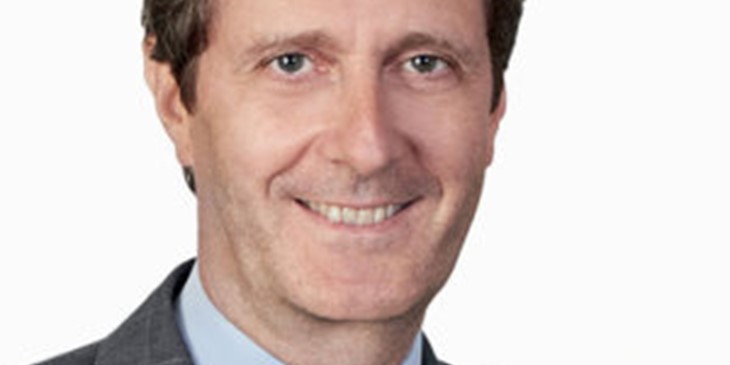5 August, 2020
ALBAN LISS, PRESIDENT OF DTZ INVESTORS FRANCE, SHARES HIS VIEWS ON THE CURRENT MARKET SITUATION AND DETAILS HIS FUTURE AMBITIONS

Alban Liss, President of DTZ Investors France, shares his convictions with regard to the current situation and details his ambitions for the business during an interview with Magazine Décideurs.
What does DTZ Investors represent in France?
DTZ Investors is a subsidiary of Cushman & Wakefield which has a team in London with 60 employees managing c. €6.5 billion of real estate assets and another in Paris with 30 people managing c.€3.8 billion.
We cover the entire spectrum of investors from core to value-added. We work for institutional players and make co-investments. Recently, we have embarked on the management of a logistics warehouse development fund with Pitch Promotion, which is an approach we intend to duplicate in the future.
Offices constitute a large part of our portfolio in France with many major assets under management, such as the Aquarel building which was acquired at the start of the year in Issy-les Moulineaux. On the contrary, retail and hospitality represent a smaller proportion of our assets under management.
What are your convictions concerning the evolution of the French real estate markets given the health crisis?
In commerce, retail bashing is justified but exaggerated because of the lack of visibility. The sector is encountering structural difficulties that are not only linked to the health crisis and the reality differs greatly from one format to another. We remain attentive because this asset class will have a future once the prices have been corrected.
In logistics, the appetite of investors, certainly motivated by the development of e-commerce among others, can seem almost excessive. The prime rates are surprising whereas it is a sector that requires expertise and has its share of drawbacks with indexation of rents quite difficult to assess, complex relations with tenants, and the constant evolution of buildings. However, looking at a 20-year risk premium analysis, in relation to prime offices, the sector is ultimately relatively stable.
Tourism and the hotel industry are currently suffering but they are keeping their interest in the medium term. Serviced residences are interesting because they correlate with demographic changes which are easier to anticipate than economic ones. Our English colleagues have embarked on Co-living and have recently launched a fund in partnership with the platform The Collective. In France, we are in discussions with investors to penetrate the senior serviced residences market.
Moving to offices. Within the Institute for the Financing of Real Estate Professionals (IFPImm), we lead a discussion group that brings together innovation directors from developers, investors, users, psychologists, etc. We have observed in particular that behaviour is changing more than the building envelope. However, it is still too early to know what the medium-term impact of trends such as working from home will be. The development of the latter will probably lead to the destruction of square meters, but well-located and well-designed buildings will be resilient. We also believe that a phenomenon of transfer of demand from Paris to regional metropoles is possible.
In general, I anticipate a widening of the range of rates of return with the return of the rental risk premium. The issue of the depth of the debt will also be closely monitored. But we have never seen so much cash flow into real estate, and this trend should be sustainable.
Currently, the market is recomposing, and repricing has not yet taken place. We remain fairly active and are in the process of closing a new fund. It remains to be seen whether we will face a second general lockdown, in which case the cards will be completely reshuffled.
"Partnerships with developers are among our preferred strategies"
Under these conditions, how is your investment thesis evolving in France?
We are continuing to focus on the same asset classes by adding business parks to them, and we will be able to put the emphasis back on value creation because the risk premium will become attractive again and offer us room for maneuver.
Partnerships with developers are among our preferred strategies because the construction, administrative and rental risks make it possible to obtain IRRs in excess of 15%. We will obviously remain vigilant on locations by favouring markets where institutional investors are active for our value-added operations. Regarding the unit size of the assets, we prefer large assets to make the best use of the expertise of our teams and to protect ourselves. In general, large-scale projects rented by solid tenants tend to weather the crises better.
Regarding financing, we have observed an increase in the margins requested by the banks and a lowering of the leverage. This makes sense because lenders are risk-averse. We are more careful in our business plans. We will reduce our LTV levels to 50% for value-added operations compared to 60 to 65% before the health crisis. The number of actors willing to provide funding will also decrease. Our solid track record will be valuable in these conditions to continue to have access to the debt market.
What about DTZ Investors' ambitions in France?
In France, we aim to pass the € 4 billion AUM mark. However, we are not in a race for size. We will favour a high-quality strategy that will allow us to create value and rebalance our activity with core deals.
Interview conducted by François Perrigault ( @fperrigault )
For the original interview, please visit https://www.magazine-decideurs.com/news/a-liss-dtz-investors-nous-allons-privilegier-une-strategie-de-haute-couture-qui-nous-permettra-de-creer-de-la-valeur
Latest News
7 May, 2025
UK
Property Week Awards 2025 - DTZ Investors Announced as a Finalist in Four Categories
16 April, 2025
UK
DTZ Investors offers Work Experience and hosts an Insight Day with The Land Collective
2 April, 2025
UK
DTZ Investors Completes a 10 year term to GAIL’s Bakery
21 March, 2025
UK
DTZ Investors disposes of two Midlands retail parks for £33m.

